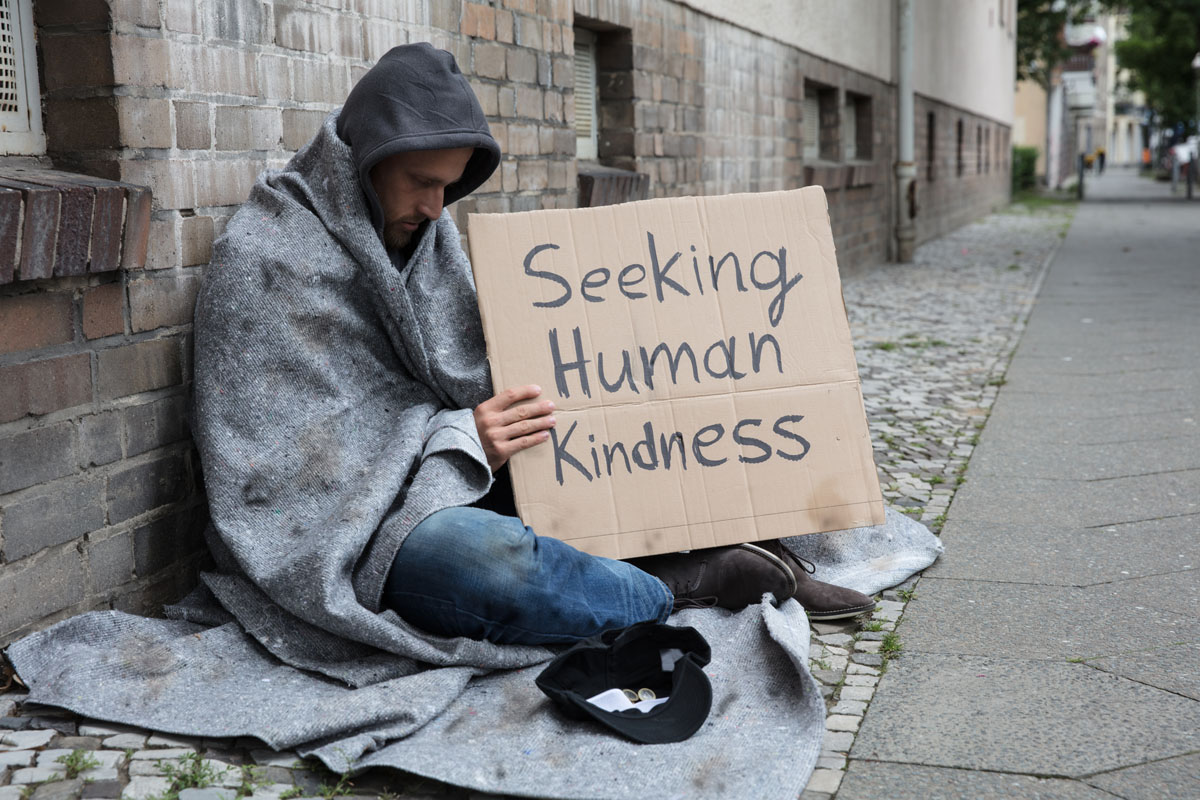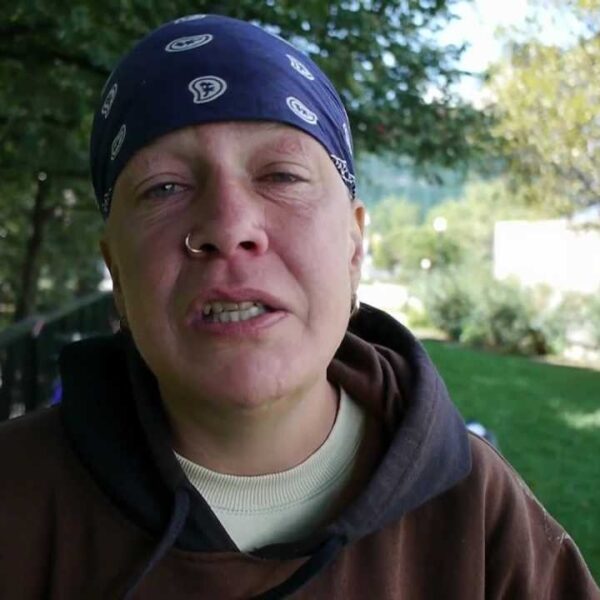Being homeless is already difficult and dangerous. Every day presents new challenges and threats to personal safety and health. These days, with coronavirus sinking its teeth into the nation, threats have grown profoundly.
In this time of crisis, resources are fewer than ever. Americans are asked to maintain a six-foot distance from others at all times and to stay home as much as possible. These measures are in place for good reason. It’s the best way to stop rapid spread of COVID-19.
While social distancing is best for long-term survival, homeless people are suffering due to a sudden lack of resources. Volunteerism has been scaled back, and is all but absent in places like soup kitchens, which depend on volunteers to function. Fundraisers and advocacy events are cancelled. With so much anxiety and fear settling over everyone, it can be appallingly easy to forget about the needs of the most vulnerable.
While it may be your responsibility to socially distance yourself, your responsibility to your community and its most vulnerable has not decreased. After all, social distancing is only one way you can practice caring for those more at-risk. Helping homeless people in our communities safely and effectively will look different, but with some creativity it can be done.
Below are a few ways you can show homeless people in your community you care while adhering to the rules governing our new, temporary way of life.
Help Prepare and Deliver Food
Homeless shelters and soup kitchens are no longer hosting large cafeteria-style meals. They’ve been replaced by grab-and-go and meal delivery services. This means there’s no need for servers. However, if you’re able to cook, you can do so as part of a small group. You can deliver meals or distribute them at a drive-through pick-up.
Remember to wear a mask and gloves at all times while preparing, handling, or delivering food. Replace gloves often and wear a face shield if you’re interacting with someone suspected to have coronavirus. One NYC program has had success asking homeless people to wash up before being given care packages.
Donate Hygiene Items and Cleaning Products
By now, everyone knows certain hygiene and cleaning items are hard to come by. Toilet paper, hand sanitizer, and disinfectant are scarce. Many homeless people are already used to going without these items; uncleanliness is a major reason so many homeless people are in poor health. It’s now more important than ever that homeless people have the means to protect themselves.
If you have extra hygiene or cleaning products, consider donating them to a homeless shelter. You can also hand them out directly to homeless people, but remember to practice social distancing, remaining at least six feet away from others. Wear a mask if you can. If you get sick, you won’t be useful to anyone.
In times like these, it makes no sense to be selfish. If you were caught up in panic-buying pandemonium at the grocery store, let your extras be put to use immediately for the welfare of those at greatest risk.
Work Behind the Scenes
Not all volunteer work involves face-to-face contact with those you serve. Offer to sort and display clothes at a clothing closet. Or, take orders at a food bank and pre-package groceries for patrons to later pick up. These are ideal tasks for those who, for any number of legitimate reasons, wish to avoid contact with others as much as possible.
Another thing you can do is help clean shelters. Cleaning procedures are becoming stricter. Disinfecting needs to be done more often, more thoroughly, and with stronger products. That’s a heavy burden on already overwhelmed and over-stretched staff. In some cases, shelters are even putting their guests to work. Reach out to homeless shelters in your area and see if any need assistance in giving their facilities a deep cleaning. It’s a task anyone can do with little to no training.
Donate Money and Resources
The best way you can help homeless people in your community is to donate. Small, local nonprofits need all the help they can get right now. These agencies rely on volunteers. In their absence, they are finding it difficult to even keep the doors open. To ensure these agencies make it through this crisis and serve vulnerable populations into the future, they need to keep the lights on, pay staff, and continue to serve their community as best they can.
You can also donate food, which agencies are in desperate need of right now. With so many Americans fearful for themselves and their families, there are no fundraisers and the usual stream of donations is running dry. If this is something you did before, continue to do it, and give a little more if you can. If not, consider this a more than acceptable replacement for the volunteering you can no longer do.
A Few Things to Remember
Volunteering during this pandemic won’t be like volunteering before. You’re probably used to interacting with the people you’re helping – shaking hands, giving hugs, making conversation. In order to actually help homeless people right now, you shouldn’t have any close contact with anyone – including those you are helping.
Instead, you’ll have to trust that you are making a difference, and that someone is benefitting from your efforts. This is why it’s important to donate to organizations you trust. Charity Navigator is a resource you can use to check whether an agency is putting the donations it receives directly into the population it serves. If they’re using their funding responsibly, they’ll have a federal identification number listed on their website.
Truly, socially distancing yourself can be a way of helping, especially if you’re part of an at-risk group (over the age of 60 or immunocompromised). It seems counterintuitive, even wrong, especially if you’re a regular volunteer. If you haven’t already, educate yourself on flattening the curve. You could already be infected, even if you feel fine. Remember that in these strange times, keeping your distance is a way of helping. If this is all you can do to help, do it with this truth in mind.
It’s easier than ever to let homeless people be forgotten and invisible. Let’s work to remember this as a time people overcame immense obstacles to help one another.













